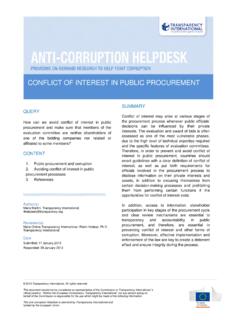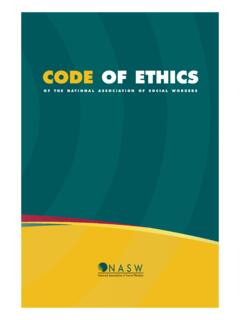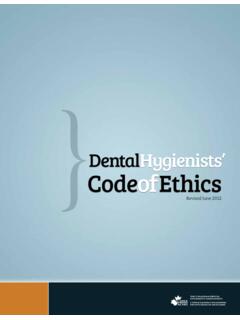Transcription of ETHICS IN ADMINISTRATION - Amazon S3
1 DELHI JAIPUR PUNE HYDERABAD AHMEDABAD LUCKNOW CHANDIGARH 1 # 8468022022 Vision IAS Student Notes: ETHICS IN ADMINISTRATION - CONCERNS, DILEMMAS AND SOLUTIONS Table of Contents 1. Governance, Good Governance and ethical Governance .. 2 2. Status of ethical Standards in Indian ADMINISTRATION .. 3 ethical issues in Indian ADMINISTRATION .. 3 ethical dilemmas in Indian ADMINISTRATION .. 4 3. ethical Concerns and Dilemmas in Private/Business Institutions .. 5 ethical Issues of Private Sector in General.
2 5 ethical Issues of Employers .. 5 ethical Issues of Employees .. 6 4. Existing Framework for ethical Standards in India .. 6 Central Civil Services (Conduct) Rules 1964 .. 6 Critique of the Rules .. 7 Draft public Service Bill 2006 .. 7 Code of Conduct for Legislators .. 8 Code of Conduct for Ministers .. 8 Code of Conduct for Judges .. 9 5. Code of ETHICS and Code of Conduct .. 9 Purpose of Code of ETHICS and Conduct .. 10 Key Elements .. 11 Importance of Code of ETHICS .. 11 Limitations of Code of ETHICS .. 12 First Initiative for Code of ETHICS - May 1997 .. 12 Second ARC Recommendations with respect to Code of Conduct and Code of 13 6.
3 Strengthening of ethical and Moral Values in Governance .. 14 General Strategies to Strengthen ethical and Moral Values .. 14 Specific Strategies to be Considered .. 14 7. Way Forward .. 15 8. Previous Years UPSC GS Mains Questions .. 15 9. Previous Years UPSC Mains Questions: Case Studies .. 15 10. Previous Years Vision IAS GS Mains Questions .. 16 11. Previous Years Vision IAS GS Mains Questions: Case Studies .. 28 Copyright by Vision IAS All rights are reserved. No part of this document may be reproduced, stored in a retrieval system or transmitted in any form or by any means, electronic, mechanical, photocopying, recording or otherwise, without prior permission of Vision IAS DELHI JAIPUR PUNE HYDERABAD AHMEDABAD LUCKNOW CHANDIGARH 2 # 8468022022 Vision IAS Student Notes: Note- This document shall cover the following sections from the syllabus- ETHICS in public ADMINISTRATION : Status and Problems.
4 ethical Concerns and Dilemmas in Government and Private Institutions Codes of ETHICS , Codes of Conduct, Strengthening of ethical and Moral Values in Governance. 1. Governance, Good Governance and ethical Governance Governance is the exercise of economic, political and administrative authority to manage a country s affairs at all levels. Good governance is perhaps the single most important factor in eradicating poverty and promoting development. Without good governance, no number of developmental schemes can bring improvements in the quality of life of the citizens. On the contrary, if the power of the state is abused, or exercised in weak or improper ways, those with the least power in the society the poor- are most likely to suffer.
5 Though, good governance is a dynamic concept, but it is largely said to have the elements of efficiency, economy, effectiveness, equity, transparency, accountability etc. which are essential for promoting prosperity of all. ethical governance, on the other hand, is a step ahead of good governance in that it seeks to realize certain universal desirable values, and not merely virtues of administrative efficiency. For example, the Government of India Act 1858 was also called as Act for Good Government of India , but it was intended for the benefit of the British at the cost of Indians. Therefore, what is good keeps on changing with time and space.
6 Hence, it is ethical governance that is needed. Key elements of ethical governance ethical governance means governance based on certain value premise, which is also good . For example, probity, integrity, compassion, empathy, responsibility, social justice etc. without which ethical issues can t be upheld. Elimination of corruption is not only a moral imperative but an economic necessity for a nation aspiring to catch up with the rest of the world. The most important elements of ethical DELHI JAIPUR PUNE HYDERABAD AHMEDABAD LUCKNOW CHANDIGARH 3 # 8468022022 Vision IAS Student Notes: governance to eliminate corruption and reduce bureaucratic delays should be rule of law, probity, and responsibility.
7 Probity would ensure that the sole purpose of ADMINISTRATION is public interest, thereby devoid of any wrongdoing. Responsibility, not merely accountability, ensures the inculcation of internal accountability for every act of omission or commission in the form of judgement based on one s conscience. If this is attained then there would be no question of corruption. Rule of law checks arbitrariness in governance, thereby reducing chances of misusing discretion. 2. Status of ethical Standards in Indian ADMINISTRATION The Indian civil services suffer from strange paradoxes- Poor self-actualization: Rigid adherence to procedure combines with a ready susceptibility to personal pressure and intervention.
8 While a bureaucrat may give the appearance of being preoccupied with correctness and propriety, in practice he may be committing endless irregularities and improprieties. One size fits all approach: An apparent pursuit of the uniform application of absolute justice may contain glaring anomalies. It is a curious reflection on their attitudes and thinking that Indian bureaucrats are willing to tolerate such contradictions between theory and practice. ethical issues in Indian ADMINISTRATION Excess of personal authority or rank position: Intentionally, officials make actions that are out of their position responsibilities and rights that, finally makes damage to the interests of state or certain citizens.
9 Negligence: A public official either does not perform his professional responsibilities or performs them in a delinquent manner, causing damage to the state or community. This is mostly because of the lack of interest that one has in one s duties and responsibilities Bribery: Bribery and corruption have come to become an acceptable part of the society, as a necessary evil greasing the wheels of the economy Complacency replaces the hard work- Although there is a core of exceptionally hardworking, dedicated and conscientious officers, they stand today overwhelmingly outnumbered by the complacent, who are obsessed with status, rank and emoluments and addicted to habits of personal luxury and indolence Psychology of evasion- When confronted with a difficult decision.
10 The Indian bureaucrat seldom makes any attempt to tackle the problem with initiative and imagination. Instead, he will refer the matter to another department or make a series of unnecessary references to subordinates to gain time. Patronization: The post-retirement assignment of senior officers to Regulatory bodies and other important posts is largely done on patronage with no set guidelines. Administrative Secrecy- Secrecy is the hallmark of bureaucracy. In the name of public interest private interests are served while maintaining secrecy. Transparency therefore is one of the most vital virtue of ethical Governance Nepotism- The practice of nepotism (the appointment of relations and/or friends to public positions, thereby ignoring the merit principle), may lead to the downgrading of the quality of the public service.
















